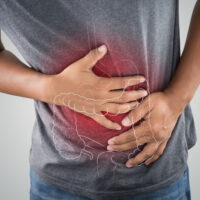Symptoms and Treatment of Atrial Fibrillation
Atrial fibrillation (AFib) is a medical condition characterized by rapid, irregular heartbeat. Those who suffer from atrial fibrillation are at a higher risk of heart failure, stroke, and other heart-related conditions. The upper chambers of the heartbeat in an asynchronous manner with respect to the lower chambers.
The movement of blood is affected by atrial fibrillation.

Symptoms of atrial fibrillation
The symptoms of atrial fibrillation may not be very pronounced in some individuals who may be unaware that they are affected by this condition. This condition may be occasional or persistent or permanent or long-standing, persistent.
Typical symptoms of this condition include:
- Palpitations or a racing heartbeat
- Weakness and fatigue
- Dizziness or light headedness
- Tiredness while exercising
- Short breath
- Chest pain
Treatment of atrial fibrillation
Your physician may treat you for atrial fibrillation if the symptoms are severe. Commonly followed treatment for this condition involves medication, non-surgical procedures, and surgical methods.
- Medication
Medicines help prevent formation of blood clots, regulate your heart rate and control the heart rhythm. Blood thinners, beta-blockers and calcium channel blockers are commonly suggested medications. However, each of these medicines come with side-effects, which the patient should be aware of. - Non-surgical procedures
Catheter ablation, a non-surgical method, is used to treat atrial fibrillation. In this procedure a catheter is inserted into a blood vessel that guides into the heart. A particular part of the heart is energized through the catheter to restore rhythm. - Surgical procedures
A surgical procedure, surgical ablation is a method where the chest is cut open and small cuts are made on the heart tissue. The scars thus formed, help regulate the heart rhythm. A few months after this procedure, the heart will return to its normal rhythm. - Treating causes of AFib
In cases where other health conditions cause AFib, treatment of those conditions helps restore rhythm of your heartbeat. - Lifestyle changes
Consumption of a healthy diet and regular physical exercise can help treat AFib.
The risk of atrial fibrillation increases with other heart-related ailments like heart valve disease, heart failure, cardiomyopathy, and heart surgery in the past. Maintaining a well-balanced lifestyle helps prevent the occurrence of AFib.





